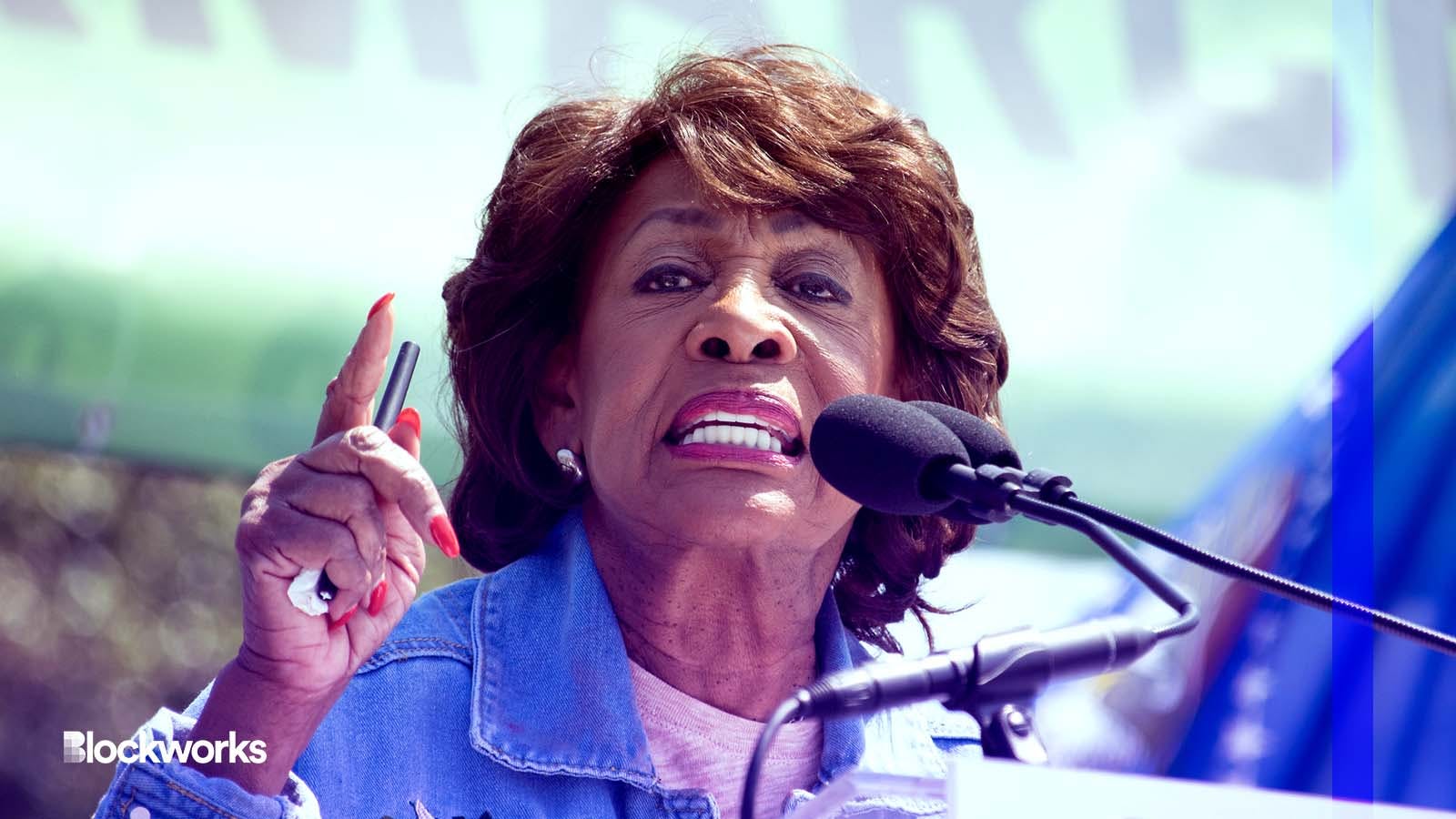Heated 7-hour markup ends in bipartisan support for stablecoin bill
Select Democrats and all committee Republicans voted to advance a bill that would give states more control over the licensing of stablecoin issuers

US Rep. Maxine Waters | majunznk/"Maxine Waters" (CC license)
After seven hours of heated debate Thursday, the House Financial Services Committee was able to pass its stablecoin regulatory framework bill with bipartisan support.
The bill — the Clarity for Payment Stablecoins Act — gives more power to state legislators by allowing them to license payment stablecoin issuers. The legislation does include some federal policies, including requiring the Federal Reserve to have input in issuing requirements.
Select Democrats and all committee Republicans voted to advance the bill, and it passed the group in a 34-16 vote Thursday evening. Democrats who voted to pass the bill include Reps. Josh Gottheimer, D-N.J., Ritchie Torres, D-N.Y., and Wiley Nickel, D-N.C.
Tensions were high to begin with during Thursday’s markup, as most Democrats made their dissatisfaction with the agenda clear.
“Today this committee is being forced by the extreme [“make America great again”] wing of the Republican party to address a trove of anti-ESG, anti-investor and wholly anti-capitalist bills,” ranking member Rep. Maxine Waters, D-Cali., said in her opening statement.
The committee room immediately reacted, with many people present shouting and expressing their outrage at Waters’ comments.
The bill is “deeply problematic and bad for America,” Waters added, citing concerns with the bill’s reserve requirements for issuers and the Federal Reserve’s limited role.
Despite the pushback, Committee Chair Patrick McHenry, R-N.C., said the bill “accomplishes our shared goal — to provide a clear regulatory framework for the issuance of payment stablecoins.”
McHenry debuted the stablecoin bill in the House last week after floating discussion drafts for months. The bill will now advance to the House floor.
The committee also on Thursday moved to advance the Keep Your Coins Act, a bill introduced by Rep. Warren Davidson, R-Ohio. The bill would prohibit Federal agencies from using digital currencies to conduct lawful transactions and also protect crypto users opting to utilize self-custody.
“Those attacking self-custody oppose individual freedom,” Davidson said on Twitter after the bill passed the committee. “They want someone they control to control your assets.”
Get the news in your inbox. Explore Blockworks newsletters:
- The Breakdown: Decoding crypto and the markets. Daily.
- 0xResearch: Alpha in your inbox. Think like an analyst.






